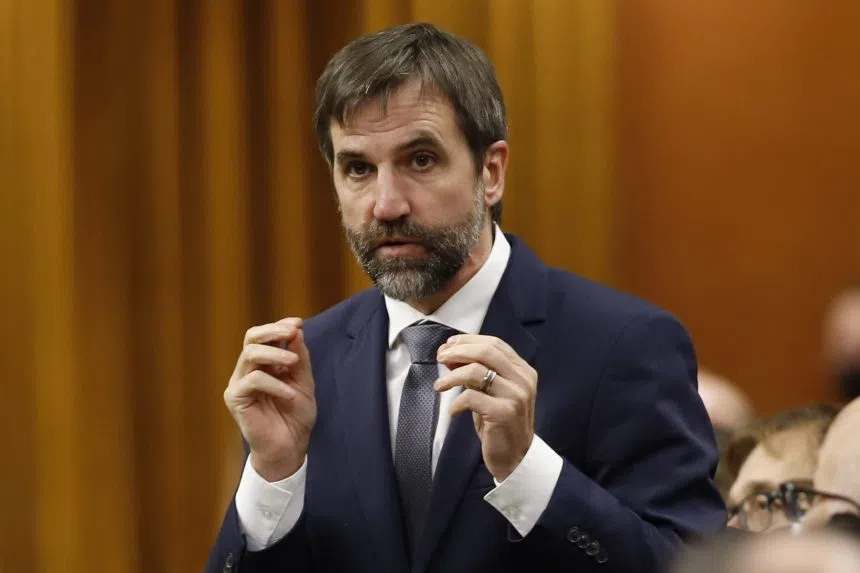He no longer represents an environmental organization and he has sworn an oath to represent all Canadians in every region of the country.
Speaking with Gormley on Monday, federal Environment and Climate Change Minister Steven Guilbeault said resource production — like oil and gas — is under provincial jurisdiction, and his government won’t try and stop it. But carbon emissions need to be reduced.
“There’s a number of things that need to happen, and frankly there’s a number of things that are already happening,” he said. “There’s a number of companies in Saskatchewan that are embracing this transformation.”
Guilbeault says Canada will continue to use oil for the foreseeable future, but the country will use less of it as it electrifies transportation systems and more people use electric vehicles.
“And I know not everyone is doing that, but it is happening and it is happening in Canada, in the U.S. and in Europe. It is happening in China. One out of two electric vehicles that are sold right now in the world is sold in China,” he said.
Right now, solar and wind are the cheapest form of electricity production, ahead of dams and natural gas, he added. Nuclear power may also play a bigger future role.
“It’s not up to governments to decide which kind of technologies will thrive … What we need to do as government is put in place the right conditions so that innovation happens and the best technologies make it out into the market,” Guilbeault added.
The federal government isn’t subsidizing the production of solar or wind power, and it won’t do so for oil and gas either.
“Why should we subsidize other forms of energy if we’re not subsidizing these ones?” he asked, adding there’s a commitment from the G-20 countries to phase out oil and gas subsidies by 2025 — but in Canada, the goal is 2023.
What he sees years from now is a reduction in the amount of pollution from every sector of the economy, including oil and gas. That includes a carbon tax of $170 per tonne by 2030.











